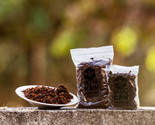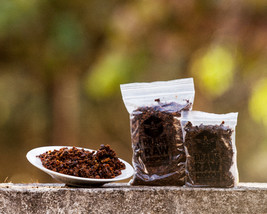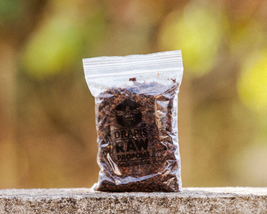Rendered at 08:33:03 05/08/25
DrApis Raw Propolis, 200g (7 oz), natural, traditional methods, made in Portugal
£21.18 GBP
Ships from
Portugal

Shipping options
Return policy
Replacement product available within 30 days
Purchase protection
Payment options
PayPal accepted
PayPal Credit accepted
Venmo accepted
PayPal, MasterCard, Visa, Discover, and American Express accepted
Maestro accepted
Amazon Pay accepted
Nuvei accepted
Shipping options
Return policy
Replacement product available within 30 days
Purchase protection
Payment options
PayPal accepted
PayPal Credit accepted
Venmo accepted
PayPal, MasterCard, Visa, Discover, and American Express accepted
Maestro accepted
Amazon Pay accepted
Nuvei accepted
Item traits
| Category: | |
|---|---|
| Quantity Available: |
10 in stock |
| Condition: |
New |
| Purpose: |
Listing details
| Seller policies: | |
|---|---|
| Shipping discount: |
No combined shipping offered |
| Posted for sale: |
More than a week ago |
| Item number: |
1334330441 |
Item description
This is a listing for 400g (14.1 oz) of Portuguese raw propolis packaged in a ziplock bag. Ready for the preparation of ointments and tinctures.
# What is propolis?
Propolis, also known as bee glue, is a sticky resin that worker bees make by gathering sap from nearby plants and trees and mixing it with beeswax, pollen, essential oils from flower buds and saliva. They use it to seal small gaps in the hive and to inhibit fungal and bacterial growth.
As happens with any other natural product, the exact composition of propolis varies from region to region and from season to season, according to the saps available in the vicinity of the beehive.
# How Portuguese bees make it
DrApis' propolis is made in Alentejo (Southern Portugal) by the local subspecies of honey bees, Apis mellifera iberiensis. These bees gather resins from Alentejo's dehesa almost all year round. The result is a dark brown propolis that includes resins from cork oaks (Quercus suber), holm oaks (Quercus ilex), rockroses (Cistus spp.) and many other native trees and bushes.
# How we gather it
We gather propolis by placing small nets in the beehive. Worker bees have a natural tendency to fill the gaps in this net with propolis.
Unlike scraping, the net technique we use leaves honeycomb frames undisturbed and guarantees a high quality propolis with little to no hive residues (such as wood chips). This separation between propolis and honeycombs also guarantees a minimal presence of wax in propolis, making sure you are not paying for excessive amounts of beeswax.
# Medicinal properties
Propolis has been used as a traditional medicine for thousands of years. It is thought to have antibacterial, antiviral, antifungal, and anti-inflammatory properties.
Raw propolis is poorly water soluble, thus it is most often diluted in alcohol to make a liquid extract or tincture, or in fat/oil to make a cream, ointment or lotion.
Propolis tinctures are used as a natural antibiotic to heal sore throat, pharyngitis, laryngitis, ear infections, and hinder the development of colds and influenza.
Propolis ointments have been successfully used to heal genital herpes and cold sores (herpes labialis) and treat skin injuries, it limits the development of scars and accelerates wound healing.
Scientific research on propolis is still limited. Researchers aren't exactly sure how it works, but propolis was proven to be effective "in vitro" against some bacteria, viruses (rhinoviruses, the predominant cause of the common cold, and herpes), and fungi (Candida albicans and some dermatophytes). The US National Institutes of Health (NIH) rates propolis as "possibly effective" for treating cold sores, genital herpes, and post-surgery mouth pain.
Do avoid taking propolis if you have an allergy to honey or bees.
# Other uses
Besides folk medicine, propolis is also used as a varnish ingredient for string instruments (violin, cello, etc.) and as the main ingredient in natural chewing gum.
# Storage
Store propolis in the freezer. This prevents mold formation and makes propolis hard and brittle, thus easier to handle when preparing ointments or tinctures.
# Product specifications
Net weight 200g (7 oz)
# Shipping
Items will be shipped through expedited mail with tracking. Expected delivery times are:
- Europe: 3 business days.
- Rest of the World*: 5 business days.
* Delivery may take 15 business days or longer in countries with tight or lengthy customs' inspections.
Added to your wish list!

- DrApis Raw Propolis, 200g (7 oz), natural, traditional methods, made in Portugal
- 10 in stock
- Handling time 1 day.
- Returns/refunds accepted
Get an item reminder
We'll email you a link to your item now and follow up with a single reminder (if you'd like one). That's it! No spam, no hassle.
Already have an account?
Log in and add this item to your wish list.






